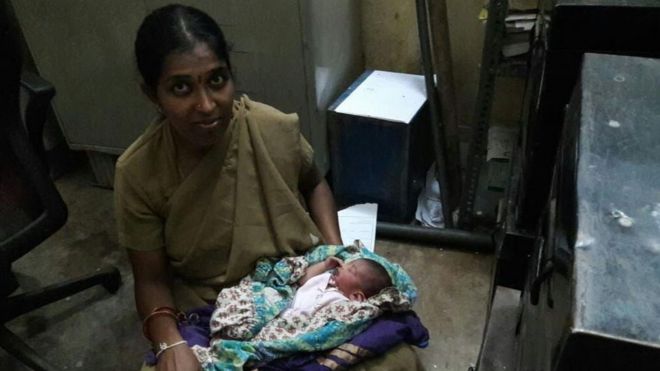[ad_1]
-
History And Significance Of Breastfeeding
In prehistoric times breastfeeding was the priority of new mothers until later in infancy. During the ancient period, Goddesses of motherhood and fertility were sculpted with bare breasts in order to mark the crucial nature of breastfeeding, and at the same time, wet nurses came into the picture. These were women who would breastfeed and tend to the needs of babies that were not biologically theirs. Wet nurses were appointed in cases where the mother died post-childbirth or was unable to feed her baby by herself (or in some cases chose not to feed her baby).
In Ancient Egypt, breastfeeding was the first priority of mothers until infants reached six months of age, and then, cow’s milk was given to children as is followed in some Indian cultures as well. In Ancient Mesopotamia and Ancient Greece, breastfeeding was of high value and one can find numerous references in mythology like depicted in numerous sculptures or statues of goddesses like Hera, Gaea, and Demeter breastfeeding their children.

Artemis of Ephesus, the protector of childbirth and the puerperium, was depicted as having multiple breasts in dozens of copies of the original statue. In Islam, breastfeeding was fundamentally religious in nature and it was advised for women to breastfeed for up to two years in the holy Qu’ran and declared that every newborn infant had the right to breastfeed.
It described the need for continuity between the intrauterine environment, in which food was transferred from the mother’s blood through the placenta, and the extra-uterine environment, in which the infant is fed with breast milk. So after birth, the infant remained attached and dependent on its mother for food for 24months. In case the mother was unable to breastfeed, the parents could mutually and carefully appoint a wet nurse.

Some women in the Byzantine and Indian culture believed colostrum (which is a major component in breast milk) to be harmful to their baby and substituted it for honey or cow’s milk in the initial months. However, in India the ancient scriptures Vedas prescribed breastfeeding till the eruption of teeth (or teething) in babies; this usually happened after a period of 6 months. The scriptures also compare breast milk to the sweetness of nectar and state that breasts and milk symbolize longevity.
With the commencement of the 19th century, substitutes of breast milk were introduced and artificial feeding ultimately became the first choice for mothers. It was revealed that formula milk was much more nutritious for the baby after chemical analyses at the outset of this century and by the 20th century most women had opted for formula milk.

As a result, an outbreak of necrotizing enterocolitis occurred with an increase in infant mortality rate. Women avoided breastfeeding after the over-sexualization of breasts and felt ashamed of breastfeeding in public. Lately, however, with growing awareness, a strong much-needed movement for normalizing breastfeeding in public has emerged once again and mothers have begun to stick with breastfeeding their children in lieu of artificial feeding.
-
Benefits of breastfeeding for mother and baby
Breast milk and the act of breastfeeding have multiple benefits for both mother and child:
- Contrary to popular belief, the colostrum (a thick yellow fluid) present in breast milk is high in protein, low in sugar, and filled with nutritious compounds like immunoglobulin beneficial for the baby. It helps the baby’s digestive tract to develop.
- Breast milk contains antibodies that help fight viruses and various kinds of infections like ear infections, respiratory tract infections, common cold, etc., even beyond infancy.
- Breastfeeding promotes a healthy weight and prevents the onset of childhood obesity.

Science News - The act of breastfeeding is highly advantageous for mothers as well; it helps them lose post-pregnancy fat.
- During breastfeeding, the hormone oxytocin is secreted which prevents new mothers from falling into Postpartum depression.
- Oxytocin also helps the uterus contract after childbirth and helps mothers bond with their newborns.
- Very importantly, women who breastfeed stay guarded against terminal illnesses like breast and ovarian cancers for long terms.
In 2018, women in Kolkata were enraged and protested against the awful shaming of breastfeeding mothers, when a mother was allegedly mocked by employees of a mall for breastfeeding in public and was told to breastfeed in a washroom instead.

Instances like these are not unique to India; once a mother was thrown out of Corral del Carbon, Spain, in 2015 for nursing her baby inside the monument. Another nursing woman at the Victoria and Albert Museum, London was asked to cover up, however, she was later apologized for this juvenile behavior by the Director.
It would be hard to believe that we live in the 21st century when we come across incidents like these; over time due to the intense vulgarization of things, breasts began to be viewed solely as sexual objects with no other worth whatsoever. Laura Clery, a social media influencer, was heavily criticized for putting out a Snapchat video while she was breastfeeding her 2-year-old son, some said the child was too old to be breastfed and others just outrageously shamed her for doing “vulgar” things on a social media platform.

She retorted on Instagram by being the bigger person; calmly and humorously educating those sick-minded people who accused her of such things. Many female celebrities have been condemned by their fans for doing the same.
WHO and UNICEF recommend the initiation of breastfeeding within 1 hour of birth and encourage mothers to breastfeed their children without alternate food till six months and with alternatives till 2 years.

The taboo associated with breastfeeding prevents many women from nursing their babies in public and sometimes at home, in the presence of male members of the house; gravely impacting their health and the health and growth of their babies. It is high time that people stop the over-sexualization of breasts and breastfeeding and acknowledge that it is a beautiful natural process of a mother providing food to her offspring.
Women should not have to feel uncomfortable in public nursing because others around them feel uncomfortable with their own immature and unrefined mindsets. Feeling uncomfortable is their problem and they need to fix it by educating themselves about breastfeeding. Observing the motto of this years’ WBW- “Protect breastfeeding: A shared responsibility”, all of us need to take initiative to smash the taboo around breastfeeding instead of dumping the responsibility exclusively over mothers, if a mother feels uneasy while breastfeeding her baby, it is our fault, not hers.
[ad_2]
Source link









